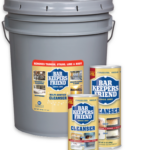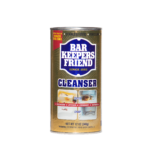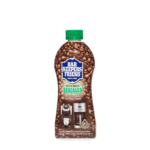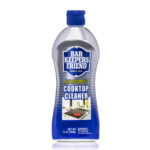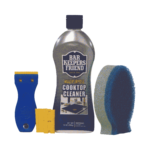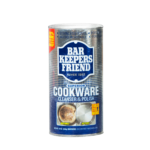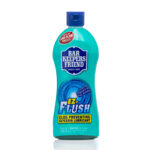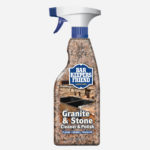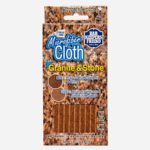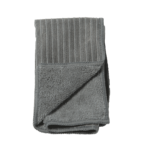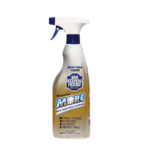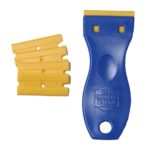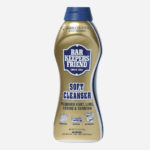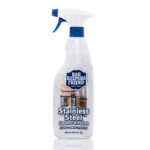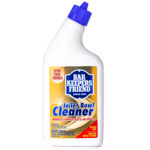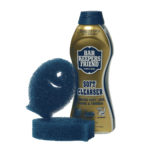The year 1882 was in the midst of the Gilded Age, an era of prosperity from 1870 – to 1900. …
February 26, 2020

 There is planning and purpose that comes with every season in the garden. One of the most important gardening tasks outside of tending the garden is caring for and cleaning garden tools.
There is planning and purpose that comes with every season in the garden. One of the most important gardening tasks outside of tending the garden is caring for and cleaning garden tools.
With proper care, garden tools can last for years or even a lifetime. Well-maintained garden tools are not only a money saver, they can save your garden, as well. Observe how much more effective these hedge shears here (by One Good Thing by Jillee) look after cleaning.
Times of transition, like early spring or late fall, are good seasonal opportunities to clean garden tools. A biennial maintenance and cleaning schedule will keep your garden tools in tip-top shape. It will also help you determine what tools are working well, what tools need to be replaced, and what tools are missing from your garden toolbox.
Lay Out What You Want to Clean
Cleaning and disinfecting your garden equipment is a multi-step process. Make sure to set aside dedicated time to the task.
Spreading everything out will allow you to see all of the tools that you have in one place and can help you quickly identify which tools will need some special attention.
Here is what you will need for cleaning your garden tools:
- A hose or sink for water access
- A bucket that is big enough to fit your larger tools (rakes, shovels, etc.) filled with hot, soapy water
- A stiff bristle brush
- Bar Keepers Friend Cleanser
- A sponge
- Steel wool
- 80 and 120 grit sandpaper
- Boiled Linseed oil
- Cotton towels or rags
Cleaning Garden Tools
The next thing you’ll want to do is remove all dirt from your tools. Any debris that remains on your tools can spread bacteria to other parts of your garden and can cause the metal to corrode.
 Ideally, you should use a garden hose with a pressurized nozzle to wash away any hardened clay soil from your garden equipment. If the dirt is particularly hard, or you are working inside without a hose, use a hard bristle brush to remove stubborn debris.
Ideally, you should use a garden hose with a pressurized nozzle to wash away any hardened clay soil from your garden equipment. If the dirt is particularly hard, or you are working inside without a hose, use a hard bristle brush to remove stubborn debris.
Tree sap, which can be left behind on garden shears and trimmers, can be removed by wetting a rag with paint thinner and rubbing it off.
Set the metal parts of your garden tools in a bucket of hot, soapy water for five to 10 minutes. Then, rinse with water.
Finally, dry each of your garden tools with a soft cotton cloth and lay them on the tarp to dry fully. Ensuring that your tools are completely dry will help to keep rust from forming on the metal.
How to Remove Rust from Garden Tools
Most garden tools are made of steel, which is prone to rust when it is exposed to oxygen. The better the grade of steel, the more susceptible it is to rust. This is why it is important not to leave your tools out in the rain and to dry them thoroughly before storing them.
Bar Keepers Friend can be used to remove surface rust from garden tools. The powdered Cleanser is effective for large tools such as shovels, rakes, and hoes. The Soft Cleanser or MORE Spray + Foam would be better options for small, handheld garden tools such as clippers and trowels.
We normally recommend that you avoid using any abrasive materials, such as steel wool, with Bar Keepers Friend. If you have very rusty tools, this is one of those times when it would be OK to use a tougher scrubber such as steel wool, a wire brush, or an abrasive sponge.
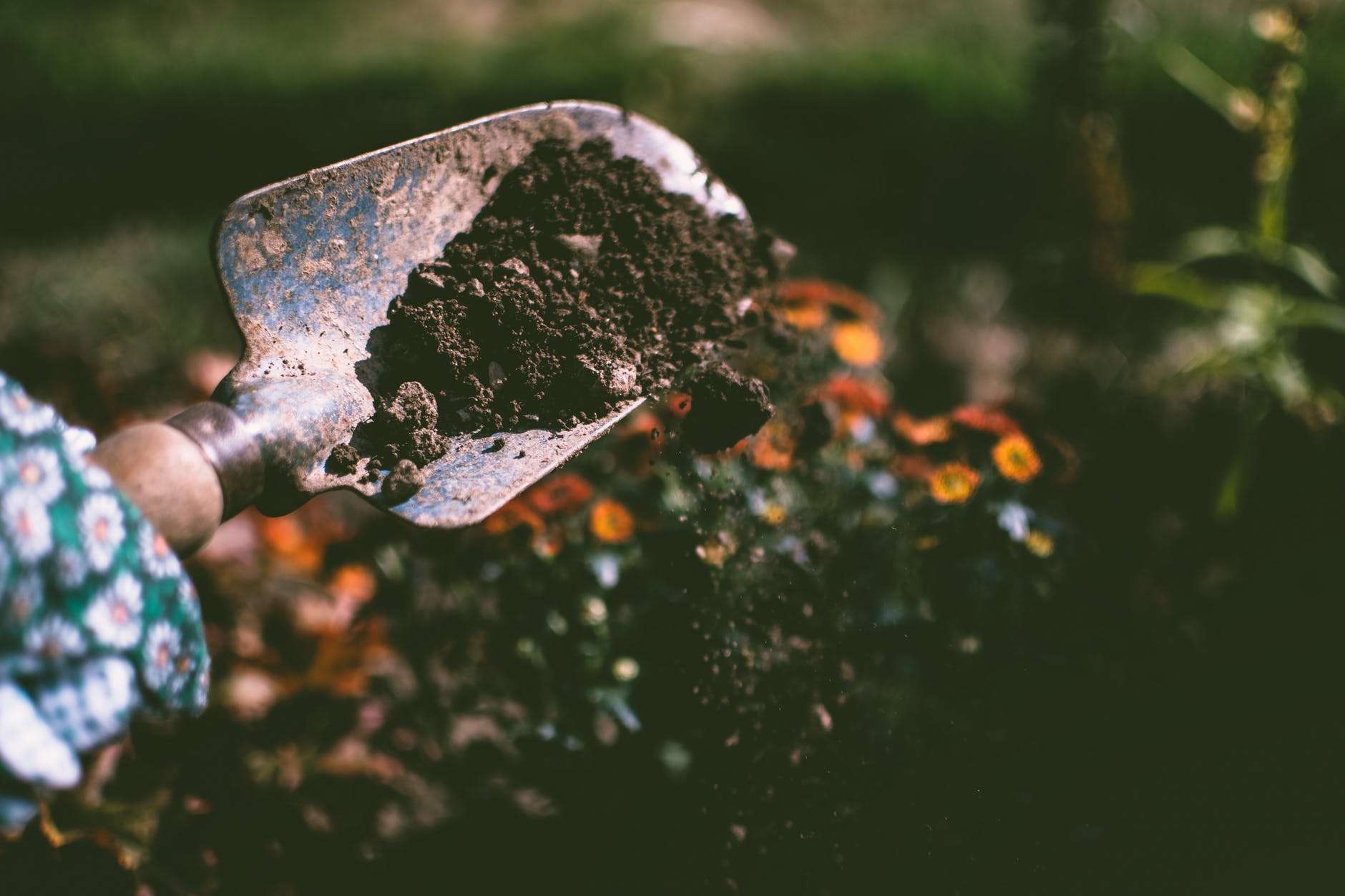 To remove rust from garden tools, apply Bar Keepers Friend to your sponge (you’ll need to wet the sponge to create a paste if you are using the powdered Cleanser) and scrub the tool in circular motions to remove the rust.
To remove rust from garden tools, apply Bar Keepers Friend to your sponge (you’ll need to wet the sponge to create a paste if you are using the powdered Cleanser) and scrub the tool in circular motions to remove the rust.
If the tool is badly pitted, you may need to use steel wool or a wire brush. Rinse and repeat the BKF application and scrubbing until you have removed the rust stains.
Important Note: Do NOT soak your tools in Bar Keepers Friend as the oxalic acid can harm the finish if left on for too long.
Once you have removed the rust, dry the tool with a cotton cloth or towel and set on the tarp to fully dry.
Fun Fact: Bar Keepers Friend Cookware Cleanser & Polish can be used on more than just cookware. YouTuber, Eddie Got Funny Jokes, used BKF Cookware Cleanser & Polish to clean an incredibly rusty wrench. You can use the cookware cleanser to clean your own gardening tools. See BKF in action here:
Disinfecting Garden Tools
Ideally, garden tools should be cleaned after each use. At the end of the day, however, most of us are more focused on getting ourselves in the shower and not on cleaning our garden equipment.
Unfortunately, not regularly disinfecting horticulture tools leaves them susceptible to spreading disease, weed seeds, and insect eggs throughout the garden. While working in the garden, consider keeping an isopropyl alcohol spray bottle or bleach wipes close at hand in order to disinfect your tools in between working on plants. Alcohol is immediately effective and dries quickly, which helps to avoid injuring plants.
Cleaning and disinfecting your tools is especially important if you notice diseased plants in your garden. It is very easy to spread infection or fungus from one plant to the next when you don’t disinfect your tools.
During this seasonal disinfecting, spray or dip tools with isopropyl alcohol and then wipe dry with a clean, soft cloth. Lay the tools on a flat surface to fully dry.
Protecting Garden Tools
Once your garden tools are cleaned, disinfected, and dried, you should protect them by applying a coat of oil.
Do not use petroleum-based oil on your garden tools because it can come in contact with your plants and soil. Boiled linseed oil, which is made from flaxseed, is a natural alternative that will keep your tools in good shape and your plants healthy.
If your tools have wooden handles, sand them with a medium grit sandpaper. Then rub a few drops of linseed oil into the wood with a cloth or paper towel. This should keep your handles from drying out and cracking.
Also treat the steel portion of your tools with linseed oil by applying the oil, letting it sit for about 15 minutes, and then wiping off the excess. This treatment should keep the metal from oxidizing.
Storing Garden Tools
It is important to store your tools properly in order to keep them working effectively. Make sure that your equipment is stored indoors and is completely dry before storing. Do not rest large tools, such as shovels, rakes, and hoes on the ground. Doing so dulls the edges and leaves them at risk for corrosion. Instead, hang your garden tools up off of the floor.
Seasonal cleaning of your tools will keep your garden equipment in great shape for years to come. Your time investment will really pay off during the next garden season.
About the Author 
Felicia Savage is a content strategist, agile marketing enthusiast, and Digital Marketing Manager at Bar Keepers Friend. When she isn’t writing about her love for Bar Keepers Friend (or wiping down her stainless steel sinks), you can find Felicia sparring at her muay thai gym, doodling in her sketchbook, or watching silly cat videos on TikTok.
What summer cleaning tips do you need to do now and why? It’s spring, not summer, but summer is just …
There are more than 5 reasons Bar Keepers Friend is an exceptional value but these 5 top the list. If …
